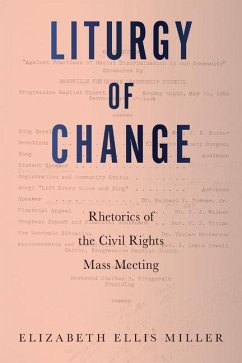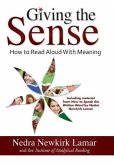"Original archival research invites new ways of understanding the rhetorics of the civil rights movement. In Liturgy of Change, Elizabeth Ellis Miller examines civil rights mass meetings as a transformative rhetorical, and religious, experience. Scholars of rhetoric have analyzed components of the civil rights movement, including sit ins, marches, and voter registration campaigns, as well as meeting speeches delivered by well-known figures. The mass meeting itself still is also a significant site in rhetorical studies. Miller's 'liturgy of change' framework brings attention to the pattern of religious genres-song, prayer, and testimony-that structured the events, and the ways these genres created rhetorical opportunities for ordinary people to speak up and develop their activism. To recover and reconstruct these patterns, Miller analyzes archival audio recordings of mass meetings held in Greenville and Hattisburg, Mississippi; Montgomery, Selma, and Birmingham, Alabama; Savannah, Sumter, and Albany, Georgia; St. Augustine, Florida; and Danville, Virginia."--
Hinweis: Dieser Artikel kann nur an eine deutsche Lieferadresse ausgeliefert werden.
Hinweis: Dieser Artikel kann nur an eine deutsche Lieferadresse ausgeliefert werden.








